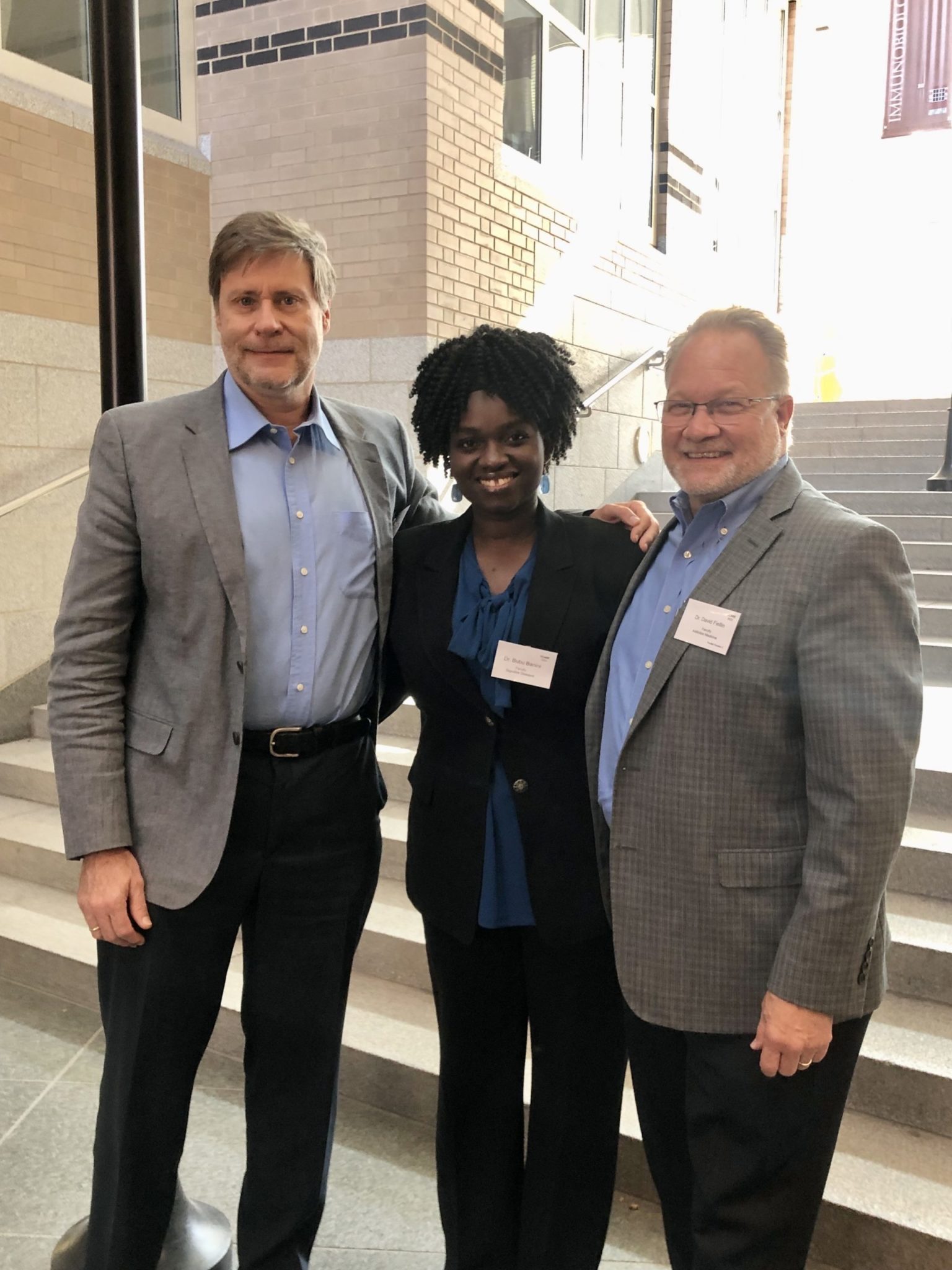Inaugural conference highlights alcohol research at Yale
The inaugural Yale Conference for Alcohol Research and Education was held on Sept. 10, bringing together students, researchers, clinicians and other community members to learn about the alcohol-related research conducted at Yale.

Courtesy of Dr. Bubu Banini
On Sept. 10, the inaugural Yale Conference for Alcohol Research and Education, or YCARE, was held on Yale’s campus.
The conference aimed to bring attention to alcohol-related research at Yale — a topic which researchers argue has a broad impact on nearly all members of the University community.
“Alcohol is a commonly used addictive substance,” Yale School of Medicine assistant professor David Fiellin wrote in an email with the News. “Even those who use alcohol at lower levels can experience [negative] health effects … we felt it was important to hold a conference to highlight the variety of research on this important health issue across the University.”
The conference was sponsored by the Yale Liver Center, the National Institute on Alcohol Abuse and Alcoholism, the Yale Program in Addiction Medicine and Yale Department of Psychiatry. Bubu Banini and Graeme Mason, both professors at the Yale School of Medicine, served as directors of the conference alongside Fiellin. Over 90 researchers, clinicians, educators and Yale community members attended either virtually or in-person.
The keynote address was given by NIAAA director George Koob. In his address, titled “Breaking Silos in Alcohol Research,” Koob emphasized the importance of cross-collaboration and delivering new information to academic and non-academic communities in the field of alcohol-related research.
Mason and Fiellin then served as moderators for a series of talks on alcohol-related research from different Yale faculty members and researchers. Topics included sex differences in alcohol disorders, behavior treatment options for alcohol use disorders, alcohol induced liver injury, impaired driving and alcohol’s relationship to stress and sleep.
In addition to the faculty talks, different Yale trainees were given the opportunity to present their own alcohol-related research in a parallel poster session. Four of these trainees were awarded for their poster presentations: Farzaneh Dashti, a postdoctoral research fellow in the Department of Internal Medicine; Nakul Raval, a postdoctoral associate in the Department of Radiology and Biomedical Imaging; Noriyoshi Ogino, a postdoctoral associate in the Department of Internal Medicine and Yasmin Zakiniaeiz, an associate research scientist in the Department of Radiology and Biomedical Imaging.
Ogino, who received both doctorate and doctor of medicine degrees from the University of Occupational and Environmental Health in Kitakyushu, Japan, first became interested in alcohol-related research after having young patients who died of severe alcoholic hepatitis, which is liver inflammation caused by heavy drinking. Ogino wrote in an email to the News that she was “struck by the fact that it is not common in Japan, but very common in the United States.”
At the conference, Ogino presented her findings on how neutrophil infiltration during alcohol hepatitis affects hepatocytes, or cells in parenchymal tissue in the liver.
“In alcoholic hepatitis, many neutrophils infiltrate the liver, but what neutrophils do to hepatocytes was unknown,” Ogino told the News. “Our results indicate that neutrophils inject an enzyme called elastase into hepatocytes, which degrades calcium channels and regulates hepatocyte proliferation. This new mechanism may be a therapeutic target for the liver regeneration failure that occurs in severe alcoholic hepatitis.”
Raval, who is currently in the lab of Ansel Hillmer at the Yale School of Medicine, presented his lab’s research on how the neuroimmune system of the brain is affected by binge drinking.
The study utilized positron emission tomography, or PET scans, a functional imaging technique measuring changes in metabolic processes, to quantify the neuroimmune effect of binge drinking. Subjects were scanned twice — once as a baseline and once after consuming alcohol.
The scans found that there was an approximate 10 percent increase in activated microglia in the subjects after consuming alcohol. Microglia are immune cells that are responsible for central nervous system tissue maintenance and local responses to injury and infection. Research has indicated that the over-activation of microglia can lead to neuronal damage.
“Neuroimmune response has been connected to the negative effects of alcohol on the brain,” Raval wrote in an email to the News. “However the majority of this work is based on preclinical research. We demonstrate for the first time a neuroimmune response in the brain following binge alcohol drinking.”
Ogino believes that holding events like YCARE, which highlight alcohol-related research, is important since many alcohol-related diseases are preventable, and comprehensive approaches to combating these diseases are still in high demand in the U.S.
The directors of YCARE hope to make the conference either an annual or biannual event. Fiellin also said he hoped that future YCARE conferences would focus more on educational efforts and include clinicians from the surrounding community.
Fiellin encouraged members of the Yale community to participate in educational events held routinely by the Yale Program in Addiction Medicine, which are designed to connect Yale students, faculty and other trainees in learning about topics related to alcohol and addiction.







